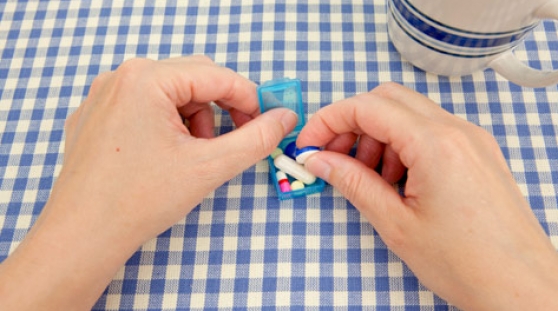Crohn's Disease Health Center
Table of Contents

There is not yet a cure for Crohn's disease. Doctor's try to focus the treatment on preventing flare-ups and reducing the symptoms.
Diet
It is important for people with Crohn's disease to eat a healthy diet. Patients should try to eat enough calories, protein, and essential nutrients from different food groups. There is not a specific diet that has been proven to make Crohn's disease better or worse, and most food problems vary from person to person.
There are types of food that make diarrhea and gas worse. To help with symptoms, try:
- eating small meals throughout the day
- drink small amounts of water throughout the day
- stay away from high-fiber foods such as bran, beans, nuts, and seeds
- stay away from foods high in fat like heavy cream, margarine, or butter
- if dairy fat is a problem, limit the amount of dairy food. Low-lactose cheeses (Swiss and Cheddar), and a product such as Lactaid, can help digest lactose
- stay away from foods such as beans, which are known to cause gas
Be sure to ask a doctor about supplements that might be needed. These include vitamins and minerals such as:
- iron supplements (if anemic)
- calcium and Vitamin D for strong bones
- vitamin B12 to prevent anemia
Medication
There is medication to treat serious diarrhea problems. Loperamide (Imodium) is available over the counter. However, it is important to talk to a doctor before taking these medicines.
Other medicines that can be helpful in reducing symptoms:
- fiber supplements to ease constipation
- Tylenol for pain
- aspirin, Advil, Motrin, Aleve, Naproxen, and ibuprofen (all NSAIDs, or nonsteroidal anti-inflammatory drugs) can make symptoms worse
A doctor may also prescribe pain medicine in serious cases.
Other prescription medicine that may be used includes:
- aminosalicylates (or 5-ASAs; for mild to moderate symptoms). These may be taken orally or may be given rectally.
- corticosteroids (for severe symptoms). These may be taken orally or given rectally.
- azathioprine and 6-mercaptopurine. These reduce the reaction of the immune system.
- antibiotics for abscesses or fistulas
- For severe cases that do not respond to any other treatment - Biologic therapy. These include infliximab (Remicade), adalimumab (Humira), certolizumab (Cimzia), and natalizumab (Tysabri).
Surgery
A procedure called a bowl resection may be done if medicines do not work. A surgeon will remove a diseased or damaged part of the intestine to drain an abscess. This will not cure the condition, but it will help with symptoms. In some extreme cases, patients will have to have their entire colon (large intestine) removed. They may or may not have to have the rectum removed.
